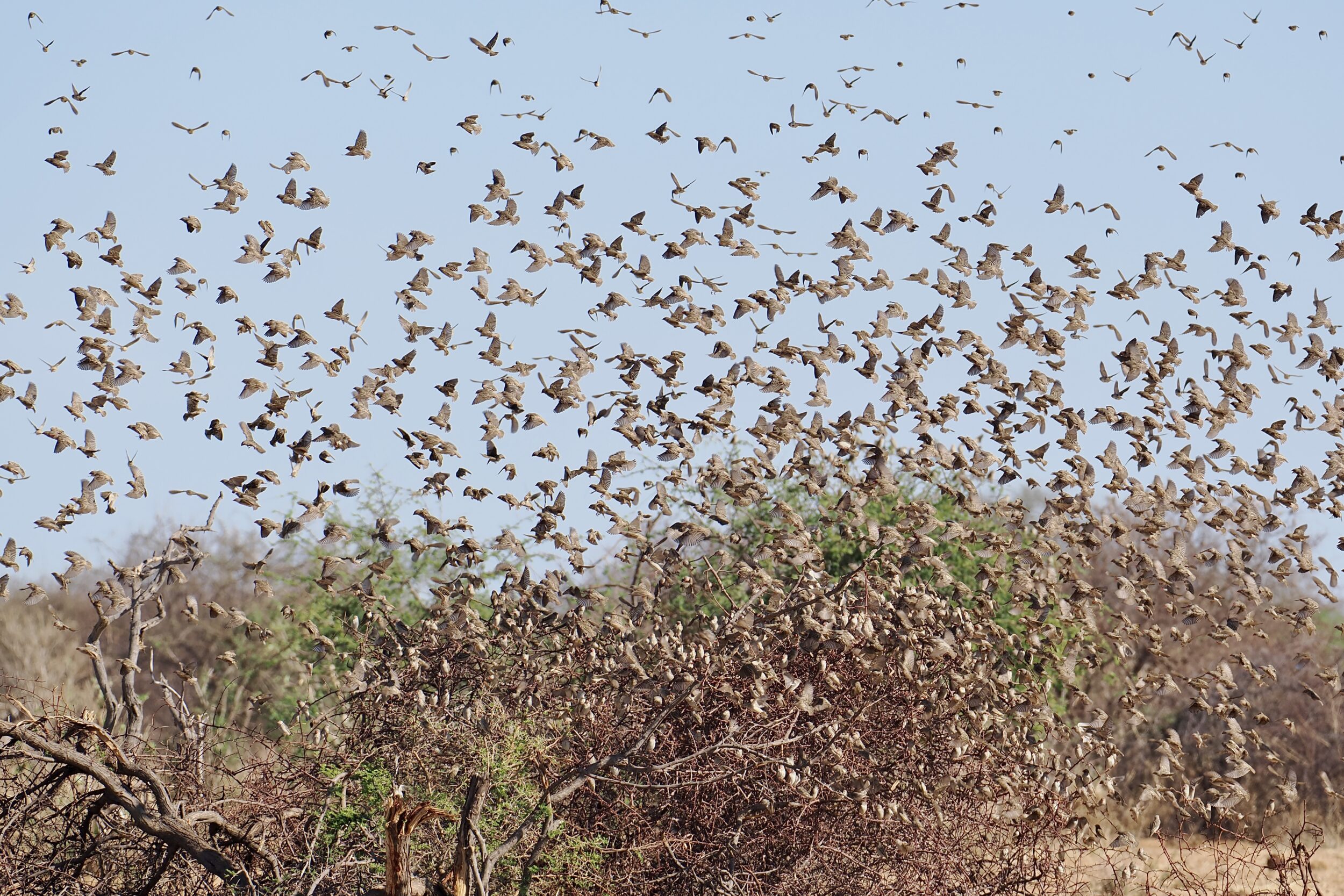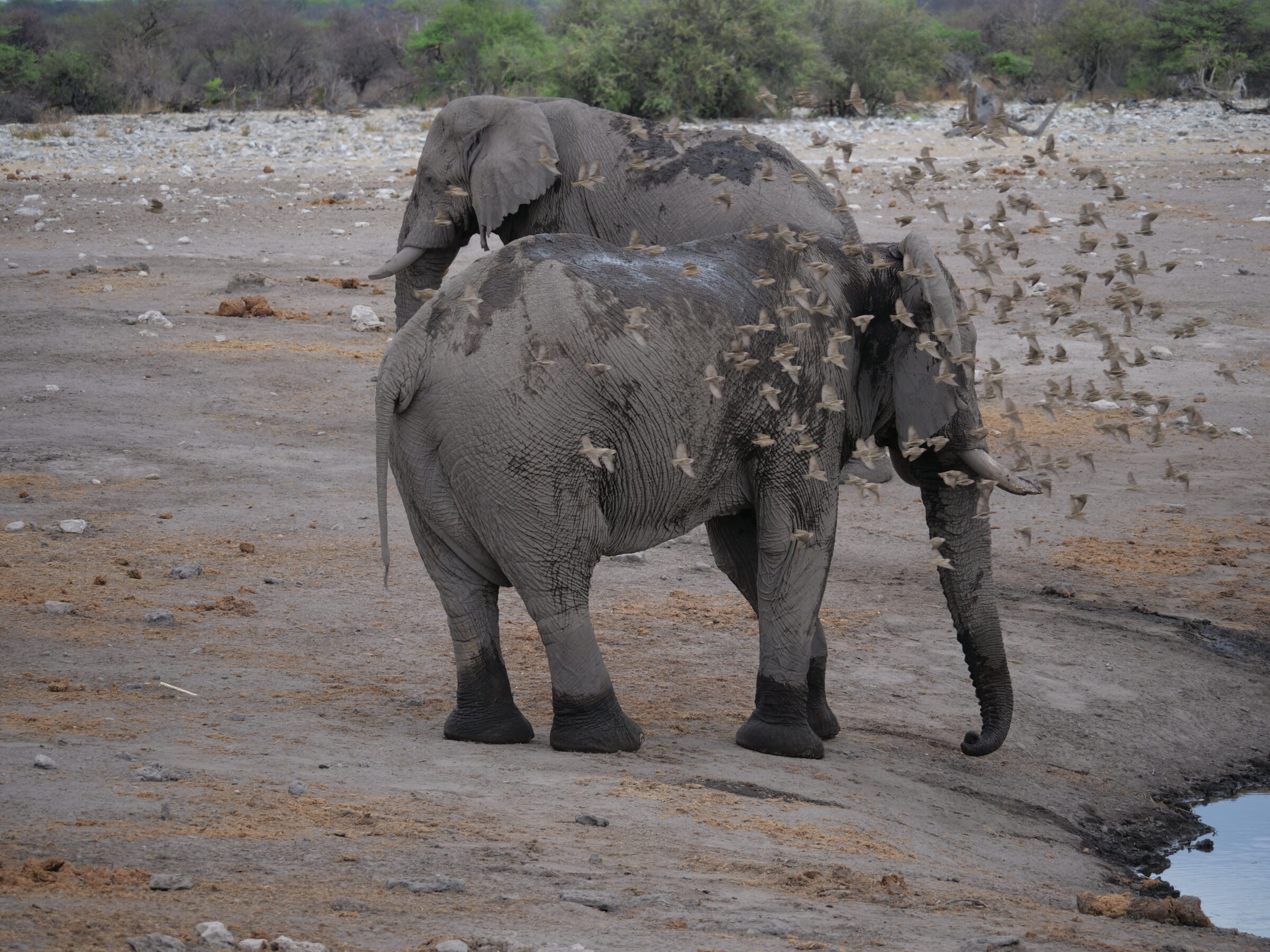This post’s featured image was taken beside a waterhole in Etosha National Park in northern Namibia.
Visible are two members of one species, and more than hundred of another.
A mature African elephant is currently “our” planet’s most massive terrestrial animal.
Imagine this:
On one side of a colossal pair of scales you place one of the pictured elephants.
In order to balance those scales you would then need at least forty thousand of the pictured birds…and if a substantial flock of red queleas was present, forty thousand would not be an unusually high number!

Elephant groups typically comprise ten individuals in an “extended family”, led by a matriarch.
Occasionally, a “clan” may assemble in a group of up to seventy individuals.
The biggest such “clan” group could consume several tonnes of food in a single day; however, elephants’ low-nutrient/high-fibre diet would see most of the tonnage speedily pass “straight through” the relevant elephants.
A single flock of red queleas can consume fifty tonnes of grain in one day.
Mind you, that flock would number circa one million individuals!
Gallus gallus domesticus – the domestic chicken – is by far the most abundant bird on earth; the current population is believed to number circa 24 billion.
Among wild birds, however, red queleas (also known as red-billed weavers) are the most abundant, by a very large margin; their current population is commonly estimated at 1.5 billion.
Like African elephants, they naturally occur in Africa, only.
Elephant numbers and range have greatly declined.
It is reckoned that they numbered circa 25 million at the beginning of the 16th century.
The common current estimate: 415 thousand.
So, collectively, the “tiny guys” are much the “bigger” species: for every one thousand African “feathered locusts” – which is how some regard the red-billed queleas – fewer than three elephants now walk under African skies.
Click here for an earlier post which will enable you to read a superb essay about elephants, and to hear June Tabor sing Les Barker’s extraordinary song/poem, “Elephant”.
